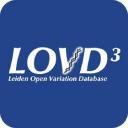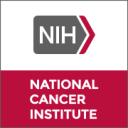NOVELTIES
Orphanet is a database of information on rare diseases and orphan drugs for all publics. Its aim is to contribute to the improvement of the diagnosis, care and treatment of patients with rare diseases. Orphanet includes a Professional Encyclopaedia, which is expert-authored and peer-reviewed, a Patient Encyclopaedia and a Directory of expert Services. This Directory includes information on relevant clinics, clinical laboratories, research activities and patient organisations. Registration not required.
Click here for more informationsPublished on 2012-05-04 14:03:49
A database that collects, encodes and makes accessible current data on human genetic variation effect on drug response, gene–drug–disease relationships (literature curation), key genes and drug pathways. The database also contains drugs with annotations related to some pharmacokinetic properties. Registration not required.
Click here for more informationsPublished on 2012-05-04 14:02:24

Add to my favorites
Remove from my favorites
From NIH: high quality information about marketed drugs
Category: Drugs search
Daily Med (from NIH) provides high quality information about marketed drugs. Registration not required.
Click here for more informationsPublished on 2012-05-04 14:00:31
Gene SNP is part of the Environmental Genome Project (from NIESH) web resource that integrates gene, sequence and polymorphism data into individually annotated gene models. The human genes included are related to DNA repair, cell cycle control, cell signaling, cell division, homeostasis and metabolism, and are thought to play a role in susceptibility to environmental exposure. Registration not required.
Click here for more informationsPublished on 2012-05-04 13:55:47
dbSNP contains human single nucleotide variations, microsatellites, and small-scale insertions and deletions along with publication, population frequency, molecular consequence, and genomic and RefSeq mapping information for both common variations and clinical mutations. Registration not required.
Click here for more informationsPublished on 2012-05-04 13:55:14

Add to my favorites
Remove from my favorites
Leiden Open Variation Database
Category: Genetic variations
LOVD provides a flexible, freely available tool for Gene-centered collection and display of DNA variations.A flexible, freely available tool for genomic variant and phenotype collection, display and curation. LOVD allows both patient-centered and gene-centered views. Registration not required.
Click here for more informationsPublished on 2012-05-04 13:48:38
SRA stores raw sequencing data from the next generation of sequencing platforms including Roche 454 GS System®, Illumina Genome Analyzer®, Applied Biosystems SOLiD® System, Helicos Heliscope®, Complete Genomics®, and others Registration not required.
Click here for more informationsPublished on 2012-05-04 13:31:56
A free extensible and customizable gene annotation portal, a complete resource for learning about gene and protein function (see Wu et al., Genome Biol 10, R130, 2009.) Registration not required.
Click here for more informationsPublished on 2012-05-04 13:30:53
The commercial company Jackson Laboratory JAX® Mice contains the most published and well characterized mouse models in the world. Registration not required.
Click here for more informationsPublished on 2012-04-29 13:44:44
Gypsy Database (GyDB) is an open editable database devoted to the evolutionary dynamics of viruses and transposable elements based on their phylogenetic classification (Llorens et al., Nucleic Acids Res 39:D70, 2011). Registration not required.
Click here for more informationsPublished on 2012-04-29 13:28:03
The Nucleotide database (NCBI) is a collection of sequences from several sources, including GenBank, RefSeq, TPA and PDB. Genome, gene and transcript sequence data provide the foundation for biomedical research and discovery. Registration not required.
Click here for more informationsPublished on 2012-04-29 13:27:22

Add to my favorites
Remove from my favorites
known and predicted protein interactions
Category: Protein interactions
STRING allows: database of known protein interactions, predict protein interactions
STRING is a database of known and predicted protein interactions. The interactions include direct (physical) and indirect (functional) associations. They are derived from Genomic Context, High-throughput Experiments (Conserved), Coexpression, Previous Knowledge. STRING quantitatively integrates interaction data from these sources for a large number of organisms, and transfers information between these organisms where applicable. The database currently covers 2,590,259 proteins from 630 organisms. Registration not required.
Click here for more informationsPublished on 2012-04-29 08:58:16
The non-profit ATCC (American Type Culture Collection) Cell Products is the most comprehensive and diverse of its kind in the world, consisting of over 3,600 cell lines from over 150 different species. It holds over 950 cancer cell lines, 1,000 hybridomas and several special collections including stem cells. Registration not required.
Click here for more informationsPublished on 2012-04-29 08:56:26
The Cochrane Collaboration is an international, non-profit, independent organisation, established to ensure that up-to-date, accurate information about the effects of healthcare interventions is readily available worldwide. It produces and disseminates systematic reviews of healthcare interventions, and promotes the search for evidence in the form of clinical trials and other studies of the effects of interventions. Registration not required.
Click here for more informationsPublished on 2012-04-29 05:30:50
Naturejobs is in association with Nature magazine. It is a worldwide career resource for scientists, providing a wide range of career advice and information. Registration not required.
Click here for more informationsPublished on 2012-04-29 05:28:03

Add to my favorites
Remove from my favorites
Category: DNA microarray data analysis
Subcategories: EMBL
The ArrayExpress Archive (EMBL-EBI) is a database of functional genomics experiments including gene expression where you can query and download data collected to MIAME and MINSEQE standards. Registration not required.
Click here for more informationsPublished on 2012-04-29 05:25:54
Babelomics is an integrative platform for the analysis of transcriptomics, proteomics and genomic data with advanced functional profiling. This new version of Babelomics integrates primary (normalization, calls, etc.) and secondary (signatures, predictors, associations, TDTs, clustering, etc.) analysis tools within an environment that allows relating genomic data and/or interpreting them by means of different functional enrichment or gene set methods. Such interpretation is made not only using functional definitions (GO, KEGG, Biocarta, etc.) but also regulatory information (from Transfac, Jaspar, etc.) and other levels of regulation such as miRNA-mediated interference, protein-protein interactions, text-mining module definitions and the possibility of producing de novo annotations through the Blast2GO system . Registration not required.
Click here for more informationsPublished on 2012-04-29 05:25:01

Add to my favorites
Remove from my favorites
commercially available antibodies for research purposes
Category: Biomedical products search
Subcategories: Antibodies
AbMiner (NIH) is a tool that allows users to search for appropriate, commercially available antibodies for research purposes, and to match each antibody to its respective genomic identifiers. The unique feature of this anitibody collection is that all antibodies are screened by Western blot and the results are provided in AbMiner. The sample used for antibody screening was a pool of the NCI-60 cancer cell lines, comprised of 60 different cell lines from 9 different tissues of origin (more info?). Besides results, AbMiner also includes the diluitons used and pertinent vendor information for all antibodies. The target antigen for each antibody was translated to the encoding gene symbol using MatchMiner. Other identifiers include gene name, HUGO status, UniGene Cluster ID, RefSeq for protein and mRNA, and Entrez Gene Ids. We will update these identifiers periodically as new information becomes available. Users can search AbMIner by any of the identifiers and easily navigate between antibody, protein, mRNA, and gene. Registration not required.
Click here for more informationsPublished on 2012-04-29 00:33:34

Add to my favorites
Remove from my favorites
Category: Biomedical products search
Subcategories: Antibodies
The Antibody Resource Page is a guide designed by scientists for scientists to find companies that sell custom monoclonal, polyclonal, and catalogue antibodies. Registration not required.
Click here for more informationsPublished on 2012-04-29 00:32:13

Add to my favorites
Remove from my favorites
Category: Biomedical products search
Subcategories: Antibodies
Access to high quality, well characterized, affordable affinity reagents has been deemed a major hurdle in cancer research by representatives of the scientific community. The reagents program within CPTC provides tools, reagents, technologies, and reference materials to allow for peptide and protein analysis for a variety of platforms and applications. The reagents generated within the CPTC program include cancer-related monoclonal antibodies and hybridomas, reference materials, standards kits and MRM peptides. Registration not required.
Click here for more informationsPublished on 2012-04-29 00:31:28














